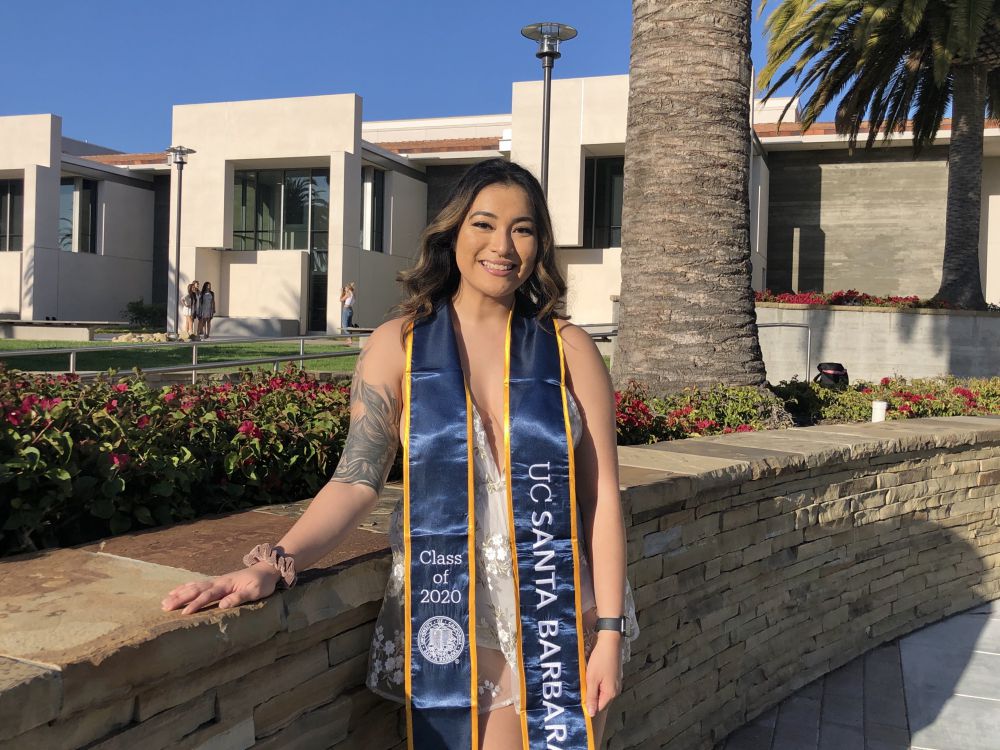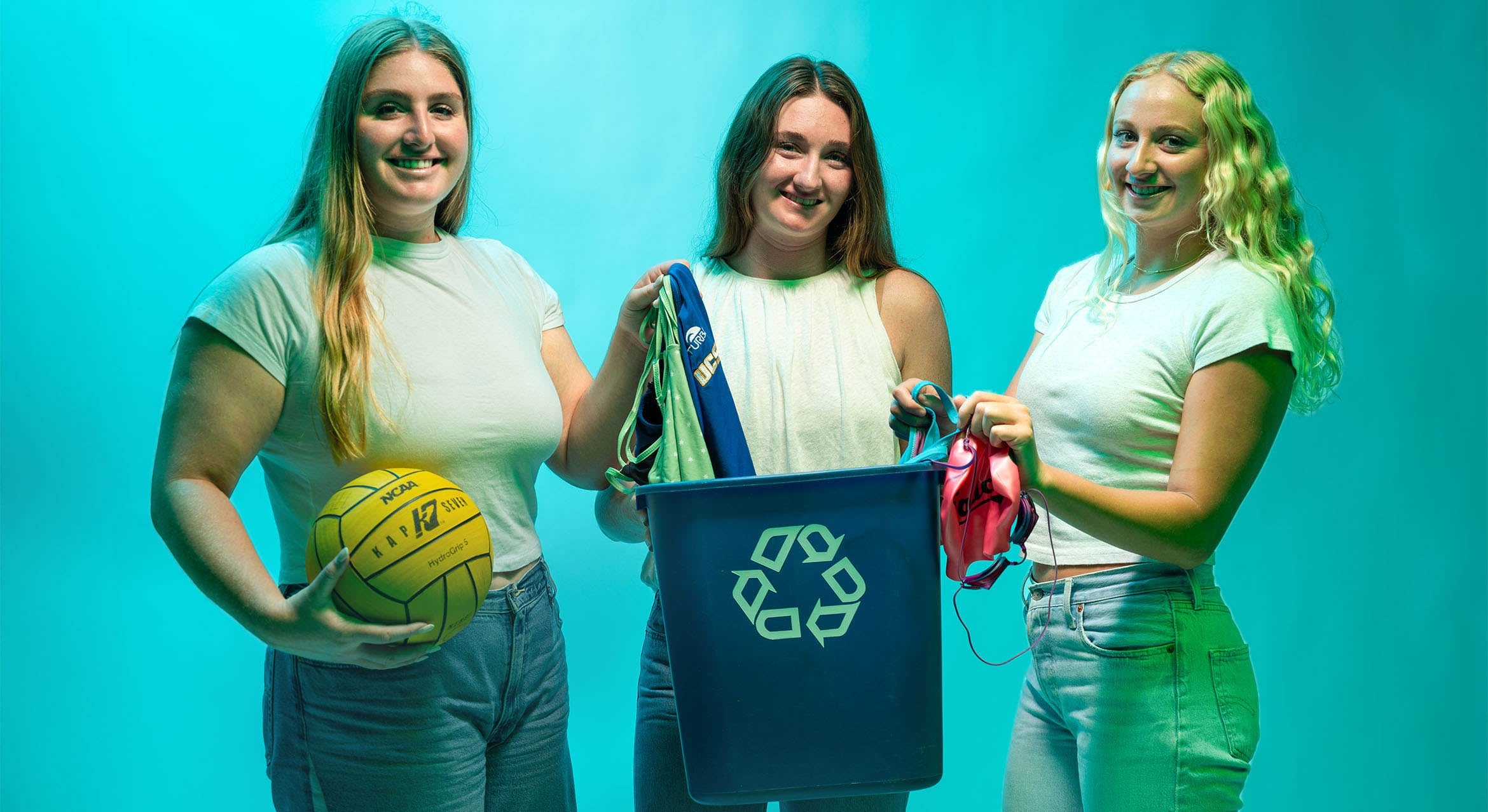
Learning to Serve
Caylin Carrillo never wore a uniform, but she learned to serve the students at UC Santa Barbara who did. A sociology major who will receive her bachelor’s degree in the campus’s Class of 2020 Virtual Celebration June 13, she spent the past two years as a benefits assistant at the university’s Veterans Resource Center (VRC).
It was a rewarding experience for the first-generation student who struggled in her transition to college. After a tough first year she returned to San Diego, her hometown, and completed general education classes at a community college while deciding on a major.
“My first year was really hard because I didn’t know anyone going to UCSB,” Carrillo said. “I kind of just went because I knew it was a good school and it was a really nice campus. But I struggled a lot with the transition to living on my own, being so far from family and having to balance work and school so much. That’s why I came [home].”
When she returned to UCSB on limited GI Bill benefits — her father spent 20 years in the Navy — she visited the VRC and met Coby Dillard, coordinator of Veterans and Military Services.
“Once I met Coby, I applied to work at the VRC and I just really liked the community,” Carrillo said. “I struggled a lot my first two years of college. I didn’t know anybody in Santa Barbara. So Coby and everyone in the VSP has been a really good community support to have for the last two years.”
The feeling was mutual.
“Caylin was one of the first dependents to come work at the VRC,” Dillard said. “Always willing to help out, she quickly proved herself to be an asset to our community. She was a key player in welcoming and integrating dependents fully into the VRC, and I couldn’t be more proud of her as she moves on to graduate study.”
Carrillo will attend UCSB’s Gevirtz Graduate School of Education for her master’s degree. She intends to work with special education students.
“One of my cousins that lived with us had autism and I just felt bad that my family wasn’t educated enough to give him the support he needed,” she said. “So that kind of always ate me up.”
In addition, Carrillo’s cheerleading coach when she was younger was a special education teacher who became something of a role model.
“So I feel like I’ve just always been involved in that community, but I didn’t have the right tools to make an impact,” she said. “So I’ve always been really interested in that field.”
Although disappointed she won’t experience a traditional commencement ceremony, she won’t have much time to dwell on it. Her 12-month master’s program starts a week after graduation. She’ll volunteer at a local school — perhaps remotely — during the day and take online classes at night during the COVID-19 campus closure.
“It’s pretty intense because they tell us to plan for 13-hour days all year long,” she said.
In the meantime, she’s in San Diego finishing her courses and preparing for final exams — and already thinking about next year’s commencement.
The cancellation of this year’s ceremony “was upsetting, but then I realized I’m going to have another graduation next year,” Carrillo said. “So I guess for me it’s not that bad, but I know a lot of my cousins are impacted. They’re graduating from high school, and they were really upset about it, but I put off taking graduation photos or planning the parade graduations, like some families are doing, because I know I’ll have one next year.”



